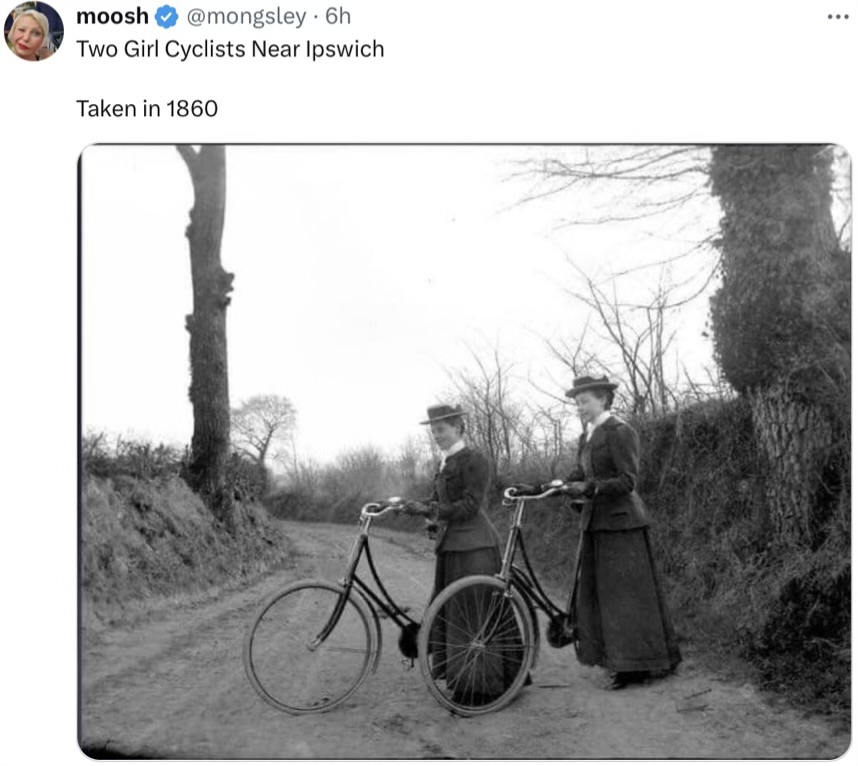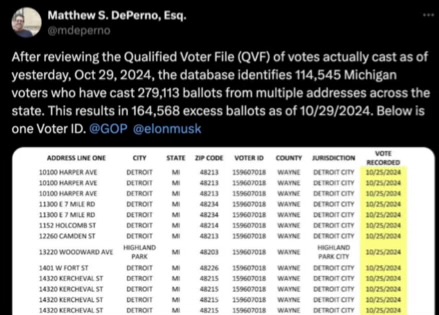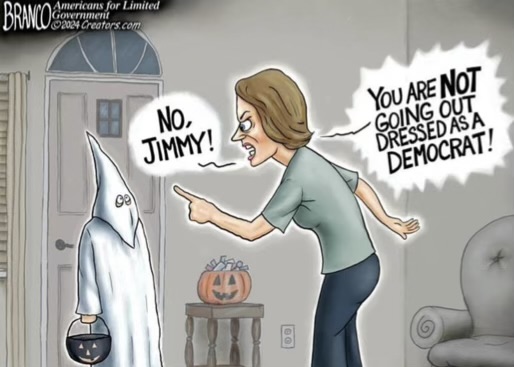(1210) The cunning midday plan is to run a few more polit-items now, then the final three episodes of the serial, then who knows … a post-prandial snooze? (1303)
20. Moosh corner

19. The rampant cheating goes on in demonratlands

One lady posted … all very well us bemoaning all this … get out and early vote … she has a point.
18. TCW today (blogrolls)

17. England today

16. Hallowe’en

15. Eisenhower and Nixon
The second worthy Quora item by one Jim Langcuster
“It was evident to many, especially American journalists during the Eisenhower presidency, that the 34th president harbored an exceedingly ambivalent attitude about then-Vice President Richard Nixon.
In seeking the presidency in 1952, Eisenhower needed someone to protect his right flank against the virulently anticommunist but isolationist Republican Old Guard. Nixon, while serving in the late 1940’s as a member of the House Un-American Activities Commitee (HUAC), had propelled himself to national fame by essentially outing Alger Hiss, a prominent State Department employee and liberal establishment figure, as a conscious agent of the Soviet Communist Party.
While regarded as a young anticommunist firebrand, Nixon, who, like Ike, aligned with the moderate and pragmatic Republican wing, nevertheless assiduously cultivated cordial relations with the GOP Old Guard.
In time, though, Nixon’s, strident and partisan demeanor and rhetorical antics grated on the President, despite Nixon’s unfailing work ethic and his willingness to operate as what the president’s previous subordinate, his wartime chief of staff, General Walter Bedell Smith, described as “Ike’s prat boy” – in other words, the fall guy.
Nixon was quite willing to do this sort of dirty work, essentially using his vice-presidential bully pulpit to attack elements on the the liberal Establishment left as a means of elevating Ike’s stature with the GOP hard right.
Even so, Nixon’s combativeness – his willingness to descend into the rhetorical gutter – never gained traction with Eisenhower.
Some of this stemmed from deep personality differences between the two. Ike was a genial extrovert who had built his military career cultivating relationships with fellow Army officers. Nixon, the other hand, was a reclusive introvert who essentially regarded the pursuit of high political office as both his vocation and avocation.
Ike discerned the same “Gloomy Gus” persona that struck Nixon’s fellow law school classmates at Duke University, leading Eisenhower to wonder why a man with no friends had opted for a career in politics.
Eisenhower’s ambivalence about his vice president was reflected in a variety of enbarrassing and, from Nixon’s perspective, hurtful ways. Aside from what many regarded aa thinly veiled jabs at Nixon via responses to the media, Ike even tried to presuade Nixon to step off the ticket before the 1956 election to take a cabinet job, such as Secretary of Defense, with the assurance that this would afford him more executive experience before staging his own run for the presidency, presumably near the end of Ike’s term in 1960.
Of course, Nixon refused to take the bait, knowing full well that Eisenhower, whom Nixon regarded privately as a Machiavellian operator par excellence, was intent on cultivating a vice presidential successor not simply to replace him but also to supplant him as the principal contender for the presidency in 1960.
However, a lot changed in the years following the election of 1960. The Republican Old Guard, whom Eisenhower roundly despised and derided privately as “goddamned mossbacks,” had been repackaged as “conservatives” every bit as opposed to Eusenhower’s moderate New Dealism as the Old Guard, though fully committed, unlike the Old Guard, to vocal support of Cold War interventionism.
Ike, as the elder statesman and titular head of the party, held his nose and supported the avatar of this reconstructed right-wing by endorsing the avatar of conservatism, Arizona Senator Barry Goldwater, the 1964 nominee who who was handily defeated in November.
Nothwithstanding this defeat, this repackaged Old Guard was poised to become the ascendant ideology within Republicanism, one that would supplant Ike’s moderate brand of “Modern Republicanism.”
Ike wasn’t having it.
Politics makes for all manner of strange bedfellows, and that explains why Eisenhower ended up supplying Nixon with an unambivalent full-throated endorsement in 1968. As the party’s flag bearer, Nixon, despite his political and character flaws, offered the best prospect of carrying on Ike’s brand of moderate Republicanism into the 1970’s and beyond.”
JH: There ya go.
20 Look at the road, no road signs, no white lines, no potholes.
…..
JH: Makes one pause and reflect.